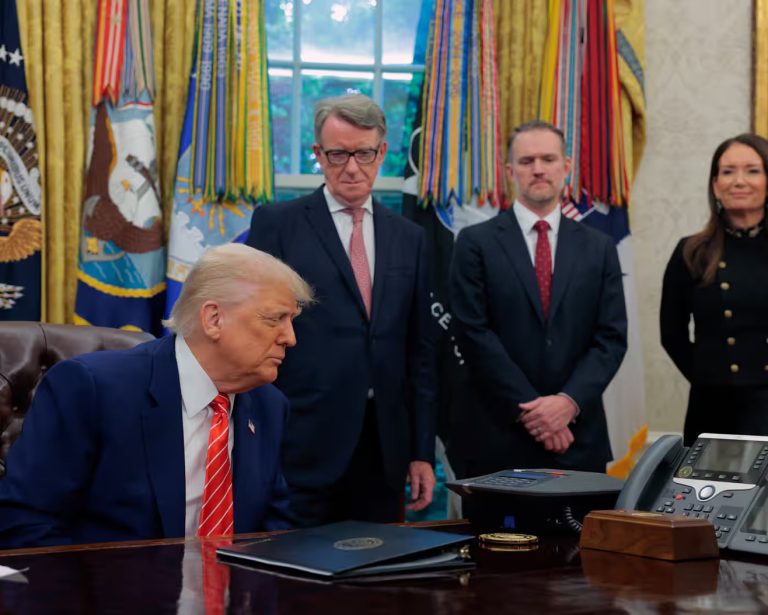White House Signals UK to Avoid Steep Steel and Aluminium Tariffs
The White House has indicated that the UK will be exempt from the 50% tariffs on steel and aluminium imports that took effect on Wednesday, offering relief to British steel producers.
In a statement, President Donald Trump said the UK would receive “different treatment” following a trade agreement reached with London last month—though it has yet to be formally signed. While Trump signed an executive order on Tuesday night that raises tariffs on imports from other countries, the UK will continue facing the existing 25% rate for now. However, the higher 50% tariff could still be imposed “on or after 9 July” if the U.S. determines that Britain has not met its obligations under the deal.
UK Business Secretary Jonathan Reynolds met with U.S. Trade Representative Jamieson Greer in Paris on Tuesday to discuss the next steps. According to the UK Department for Business and Trade, both sides expressed a strong desire to implement the agreement swiftly and committed to working closely to make that happen.
Rowan Crozier, CEO of the Birmingham-based metal stamping company Brandauer, described the development as “good news in the short term.” But speaking on BBC Radio 4’s Today programme, he warned that ongoing shifts in tariff policy were unsettling for businesses. “It creates uncertainty. Our customers are hesitant to plan ahead or place long-term orders,” he said. Crozier added that his company was reaching out directly to U.S. customers and urged the UK government to finalise the deal soon.
Last month, the UK and U.S. struck what Prime Minister Keir Starmer called a “breakthrough” trade agreement, which included provisions for easing tariffs on steel and aluminium. However, the agreement has not yet been fully implemented.
“The government has done well to shield us from the worst so far,” Crozier said, “but there’s now a hard deadline. The uncertainty must end, and we need those tariffs dropped to zero.”
UK Steel, the industry’s trade body, welcomed Trump’s decision to keep tariffs at 25% but cautioned that the situation remains unstable. Director General Gareth Stace noted, “This decision benefits shipments already en route, which we feared would face the new 50% rate. But with no clear timeline or confirmed final rates, U.S. buyers may now hesitate to place new orders from the UK.”
He added: “It’s vital that the May deal is implemented quickly to remove the tariffs entirely.”
Some UK steel companies had even considered redirecting shipments mid-Atlantic to sell into European markets and avoid the steep U.S. duties. Questions also arose over whether goods returned from the U.S. would face the 50% charge. Liam Bates, president for long products at Marcegaglia Stainless Sheffield, told The Guardian that the industry felt a sense of relief: “Storm in a teacup springs to mind.” Still, he noted, “This remains a broader issue—anything not strictly UK is still subject to the full 50%. We need this 0% deal finalised.”
A UK government spokesperson confirmed: “The UK was the first country to secure a trade agreement with the U.S. earlier this month. We remain committed to supporting British businesses and jobs, including in the steel sector. Thanks to the agreement, UK steel won’t face the additional tariffs.”
“We’ll continue to work with the U.S. to fully implement the agreement, which aims to remove the current 25% tariffs altogether.”
TUC General Secretary Paul Nowak welcomed the exemption, calling it a major relief. “It pulls us back from the brink,” he said. “Thousands of jobs were at risk if the full tariffs came into force. Many workers will breathe easier today.”
When asked whether the full text of the trade deal would be released, White House Press Secretary Karoline Leavitt confirmed, “There is definitely language that our side has seen.” She added, “You’ll need to ask the UK Parliament why they haven’t seen it. That’s not something I can answer.”

